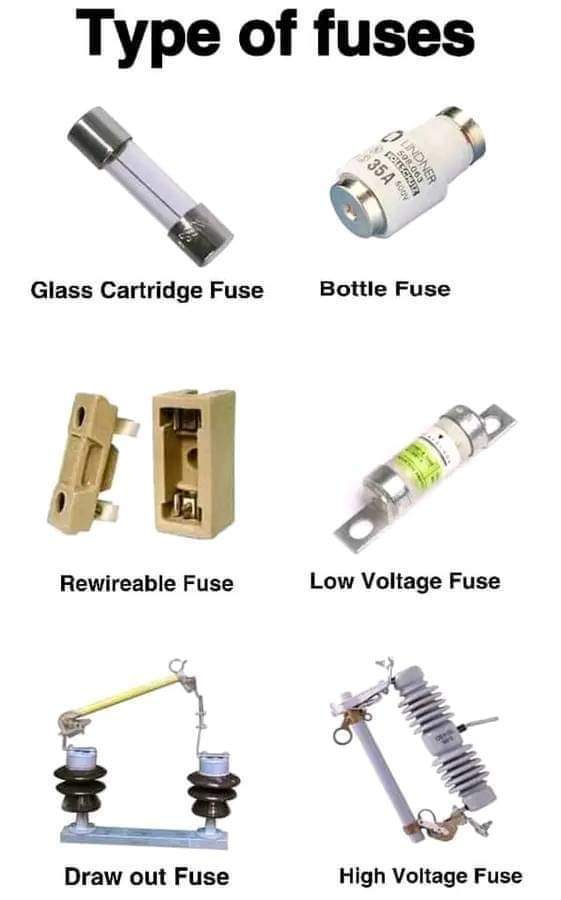Description: These are enclosed in a cylindrical body, typically made of ceramic or glass, with metal caps on both ends. They are used in both low and high voltage applications.
Types:
Fast-Acting: Blows quickly for overcurrent protection.
Time-Delay (Slow-Blow): Allows for a brief surge before blowing, useful for devices with high inrush currents like motors or transformers.
2. Bottle Fuses:
Description: Similar to cartridge fuses but specifically designed for high voltage applications. They are often used in power distribution systems where the fuse must handle high voltages without arcing.
Usage: Commonly found in industrial settings or utility power systems.
3. Rewirable Fuses:
Description: These are older types where the fuse element can be replaced. They consist of a base with a carrier that holds a piece of fuse wire.
Advantage: Economical as they can be reused by replacing the wire.
Disadvantage: Not as precise or safe as modern fuse types due to potential for incorrect wire size or material.
4. Low Voltage Fuses:
Description: Designed for circuits where the voltage does not exceed a certain threshold, typically up to 1000V AC or 1500V DC.
Applications: Used in household appliances, electronics, and automotive systems where the voltage is relatively low.
5. Draw Out Fuses:
Description: These are designed for easy replacement without de-energizing the entire system. They can be pulled out for inspection or replacement while the system remains operational.
Usage: Common in switchgear where maintenance or replacement without downtime is crucial.
6. High Voltage Fuses:
Description: Engineered for systems where the voltage can be in the thousands of volts. They are crucial in preventing catastrophic failures in high voltage electrical systems.
Types:
Expulsion Fuses: Use the expulsion effect to quench the arc by gases produced from the fuse material.
Current Limiting Fuses: Designed to limit the let-through current during a fault, reducing the stress on other components.
Each type of fuse has its specific application based on the voltage level, current rating, response time, and the environment in which it's used. The choice of fuse type depends on the protection requirements of the electrical system, including considerations for safety, reliability, and ease of maintenance.






No comments:
Post a Comment